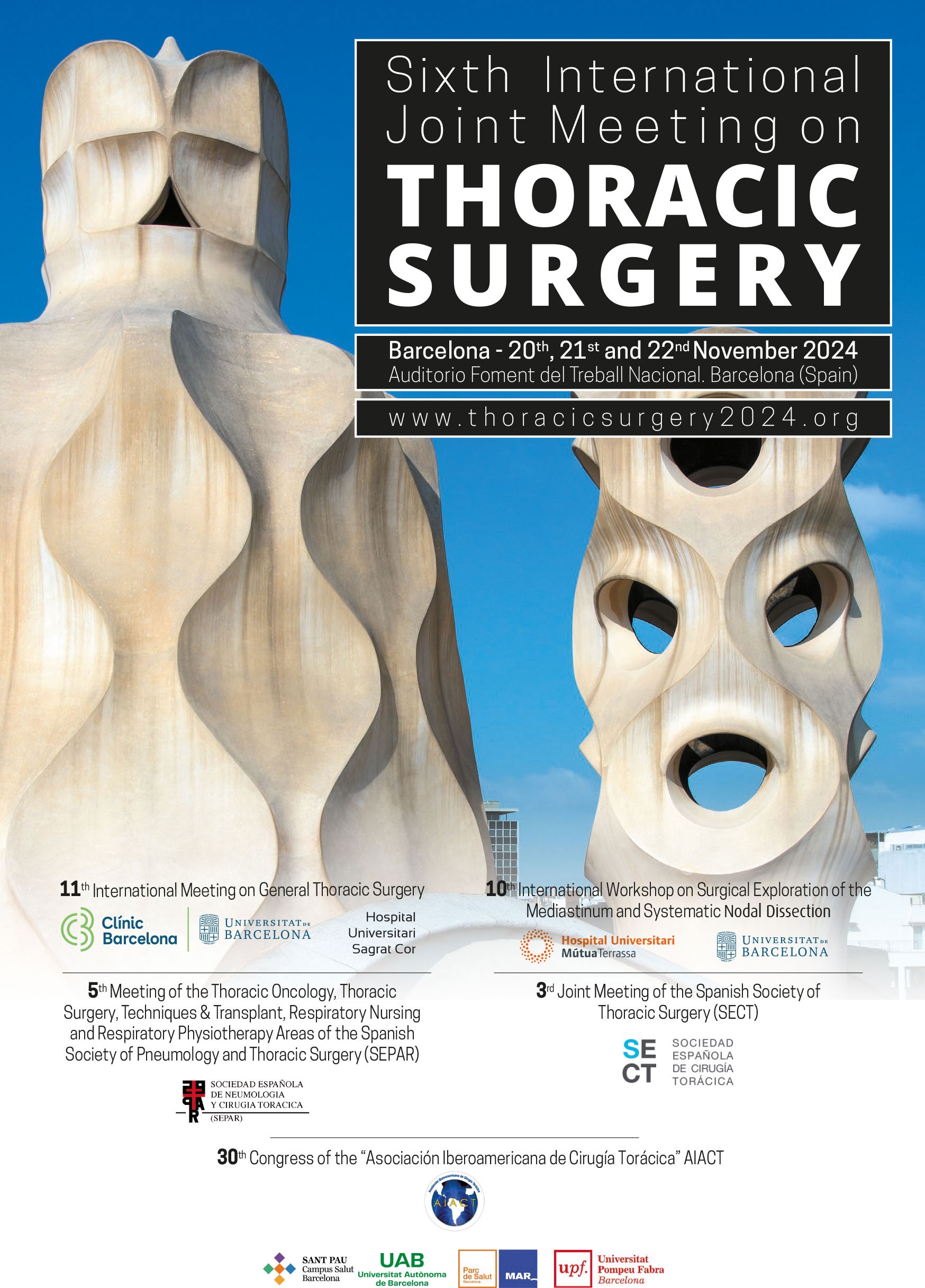
Sixth International Joint Meeting on THORACIC SURGERY 2024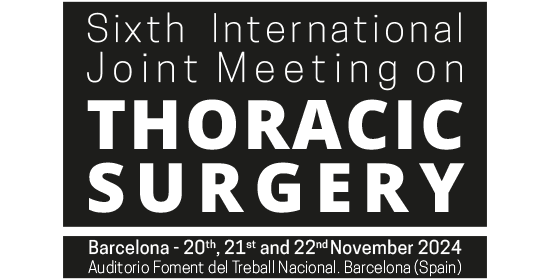

Presentation
Dear colleagues:
We welcome you to the Sixth International Joint Meeting on Thoracic Surgery that will take place in Barcelona, Spain, in November 2024. The rewarding experiences of the [ First ], [ Second ], [Third], [Four] and [Fifth] International Joint Meetings on Thoracic Surgery held in the same city in 2009, 2012, 2015, 2018 and 2021 encourage all of us to work together once again with the purpose of celebrating the sixth edition in 2024.
The Joint Meeting 2024 will consist of a mixture of brief oral and video presentations comprising different areas of thoracic surgery and many other selected topics closely related to thoracic surgery and thoracic oncology, with special emphasis on diagnosis, staging and treatment of lung cancer. In addition, there will be breakfast sessions and lunch seminars specifically dedicated to relevant fields in thoracic surgery, and sessions of proffered papers in poster and video presentation format. A great effort has been made to present a programme with an outstanding content. In this meeting, particular attention has been given to the discussion time of the topics.
The Joint Meeting 2024 will take place in the Gothic Quarter of Barcelona, where the city originated and where the most emblematic public buildings are located: [ the Cathedral ], the imposing [ church of St. Maria del Mar ], one of the finest Gothic churches in Spain, and the [ Picasso Museum ]. Barcelona harbour, and the modernist buildings by Antonio Gaudi, [ La Pedrera ] and [ La Casa Batlló ], are within walking distance of the Gothic Quarter. Autumn certainly is the best time of year to visit Barcelona and you can enjoy pleasant walks in the city.
We hope you will honour us with your active participation in this Sixth Joint Meeting 2024. We are looking forward to seeing familiar and new faces among us. We count on you to make the meeting a real educational and scientific success.
With our kindest regards,
Organizing Committee
Laureano MOLINS. Co-Chair
Ramón RAMI-PORTA. Co-Chair
José BELDA-SANCHIS. Co-Chair
Juan J. FIBLA
Sergi CALL
Juan Carlos TRUJILLO REYES
Marc BOADA
Organizing Committee
Laureano MOLINS. Co-Chair
Thoracic Surgery Service, Hospital Clínic, Barcelona, Spain
Ramón RAMI-PORTA.Co-Chair
Thoracic Surgery Service, Hospital Universitari MútuaTerrassa, Terrassa, Barcelona, Spain
José BELDA-SANCHIS.Co-Chair
Thoracic Surgery Services, Hospital de la Santa Creu i Sant Pau, Hospital del Mar, Barcelona, Spain
Juan J. FIBLA
Thoracic Surgery Service, Hospital Universitari Sagrat Cor, Barcelona, Spain
Sergi CALL
Thoracic Surgery Service, Hospital Universitari MútuaTerrassa, Terrassa, Barcelona, Spain
Juan Carlos TRUJILLO-REYES
Thoracic Surgery Services, Hospital de la Santa Creu i Sant Pau, Hospital del Mar, Barcelona, Spain
Marc BOADA
Thoracic Surgery Service, Hospital Clínic, Barcelona, Spain
Objectives and Background
Objectives
This Sixth Joint Meeting has two principal goals: to provide the newest and the best evidence on several topics in thoracic surgery and oncology, and to review the most important details of time-honoured and new procedures and surgical techniques.
The scientific programme, a full immersion in thoracic surgery and oncology, will combine a series of short lectures with video forum sessions and educational seminars. Particular attention has been given to the discussion time of the topics in order to promote an active and rewarding participation.
The scientific programme is designed to meet the needs of residents as well as young and senior specialists in thoracic surgery, pneumology, and oncology, as well as that of related specialists, i. e., anaesthesiologists, nurses and chest physiotherapists.
Background
The International Meetings on General Thoracic Surgery were organized by the General Thoracic Surgery Unit of Sagrat Cor University Hospital in Barcelona, in 1992, 1994, 1997, 1999 and 2002. International Faculty members came from USA and Europe (H. Grillo, W.S. Payne, H. Ellis, P. Goldstraw, D. Mathisen, R. Landreneau, P. Pairolero, S. Hazelrigg, S. Cassivi, D. Lardinois, A. Patterson, D. Nuss, I. Vogt Moykopf, A. Lerut, E. Rendina, K. Naunheim, M.R. Mueller, and others) with a valuable contribution of the Spanish units in each of the meetings.
The International Workshops on Surgical Exploration of the Mediastinum and Systematic Nodal Dissection were organized in Terrassa, Barcelona, Spain, in 1998, 2000, 2003 and 2006. Nearly 100 speakers from Spain and abroad participated in these highly specific meetings. Their highlights were the live surgery programmes featuring systematic nodal dissection and lung resection for lung cancer performed by Japanese thoracic surgeons (T. Naruke, R. Tsuchiya, T. Goya, H. Kondo, H. Nomori, and H. Asamura), and videomediastinoscopies, extended cervical videomediastinoscopies, video-assisted mediastinal lymphadenectomies, performed by staff thoracic surgeons and invited thoracic surgeons who developed these techniques (M. Huertgen, B. Witte, M. Zielinski, and J. Kuzdzal). Additionally, topics such as transbronchial needle aspiration and bronchial and oesophageal ultrasound with fine needle aspiration were integrated into the programme due to its clinical relevance and utility.
The Thoracic Oncology, Thoracic Surgery and Techniques, Transplant, Nursing and Chest Physiotherapy Areas are multidisciplinary collaborative working groups of the Spanish Society of Pneumology and Thoracic Surgery (SEPAR) mainly composed by thoracic surgeons and pulmonologists, but also by oncologists, radiologists, pathologists, nurses, etc. The number and quality of the scientific publications, guidelines and meetings testify to the long tradition and prestige of these working teams. Some of the most relevant works have been those of 1) the Bronchogenic Carcinoma Cooperative Group I (GCCB-SEPAR-I) that registered data from nearly 3000 patients with lung cancer who had undergone surgical treatment from 1993 to 1997; from the analyses of the collected data, more than 30 publications in indexed journals have been already published; 2) the Spanish Multicentre Study of Neuroendocrine Tumours of the Lung (EMETNE-SEPAR), with more than 5 publications in indexed journals specifically related to the treatment and prognosis of neuroendocrine lung tumours; 3) the Spanish Group for Surgical Resection of Colo-Rectal Pulmonary Metastases (GECMP-CCR-SEPAR) that finished the registration of data from more than 540 patients treated surgically in 2010 and has published 6 papers till now; 4) the Bronchogenic Carcinoma Cooperative Group II (GCCB-SEPAR-II), specifically created to participate in the Prospective Lung Cancer Staging Project of the International Association for the Study of Lung Cancer towards the 8th edition of the TNM classification of lung cancer, that already has registered online more than 2600 patients and has published recently the descriptive analysis of the registry; and 5) The Bronchogenic Carcinoma Cooperative Group III (GCCB-SEPAR-III) recently created to participate in the collection of data of the IALSC to inform the 9th edition of the TNM classification of lung cancer to be released in 2024.
In 2009, the leadership of these three long-standing initiatives joined their efforts in order to concentrate in a single meeting the updated information on several topics in the fields of general thoracic surgery and thoracic oncology. The result was the First International Joint Meeting on Thoracic Surgery that took place in Barcelona, Spain. National and international faculty members from all around the world came to Barcelona to share knowledge and experience on relevant topics and novel aspects of thoracic surgery. The successful result in terms of scientific quality, number of participants and encouraging feedback prompted us to promote the celebration of the second, third, fourth, fifth and now sixth editions of the International Joint Meeting on Thoracic Surgery.
In the Sixth International Joint Meeting on Thoracic Surgery we will keep two innovations previously introduced: 1) The collaboration of the Spanish Society of Thoracic Surgery (SECT), created in 2007. The Spanish Society of Thoracic Surgery organizes an annual congress as well as courses for residents in thoracic surgery. Its association with the Fifth International Joint Meeting on Thoracic Surgery was highly valuable, and there are all reasons to think it will continue to be so in the Sixth. 2) The incorporation of the Nursing and Physiotherapy Areas of the Spanish Society of Pneumology and Thoracic Surgery. Both groups of professionals constitute an important part of the managing team treating thoracic surgery patients. They will join us for the third time to discuss burning issues in their respective specialties.
Speakers and Chairpersons
Firas ABU AKAR, Thoracic Surgery Unit, Edith Wolfon Medical center, Holon, Israel
Carlos AGUSTÍ, Pneumology Service, Hospital Clinic, Barcelona, Spain
Clemens AIGNER, Department of Thoracic Surgery, Medical University of Vienna, Vienna, Austria
Nasser ALTORKI, Thoracic Surgery Service, The New York Hospital, Cornell Medical Centre, New York, USA
Marco ANILE, Department of Thoracic Surgery, University of Rome La Sapienza, Rome, Italy
Hisao ASAMURA, Division of Thoracic Surgery, Keio University School of Medicine, Tokyo, Japan
José Manuel ASENCIO, Department of Surgery, Gregorio Marañón General University Hospital, Madrid, Spain
Sonia BAEZA, Respiratory Medicine Department, Hospital Universitari Germans Trias i Pujol, Badalona, Spain
Josep BELDA, Thoracic Surgery Services, Hospital de la Santa Creu i Sant Pau, Hospital del Mar, Barcelona, Spain
Irene BELLO, Thoracic Surgery Service, Hospital Clínic, Barcelona, Spain
Marc BOADA, Thoracic Surgery Service, Hospital Clínic, Barcelona, Spain
Sergio BOLUFER, Thoracic Surgery Service, Hospital General Universitario de Alicante, Alicante, Spain
Matthew BOTT, Memorial Sloan-Kettering Cancer Center, NY, USA
Ilies BOUABDALLAH, Thoracic Surgery Service, Hopital Saint Joseph Marseille, Marseille, France
Souheil BOUBIA, Thoracic Surgery Service, Centre Hospitalier Ibn Rochd, Casablanca, Morocco
Sergi CALL, Thoracic Surgery Service, Hospital Universitari Mútua de Terrassa, Terrassa, Barcelona, Spain
José Luís CAMPO-CAÑAVERAL, Thoracic Surgery Department, Hospital Puerta de Hierro de Majadahonda, Madrid, Spain
Stephen D. CASSIVI, Department of Thoracic Surgery, Mayo Clinic, Rochester, MN, USA
Robert CERFOLIO, Department of Cardiothoracic Surgery, NYU Langone Health, New York, USA
Jean-Pierre CHAVOIN, Department of Plastic and Reconstructive Surgery. CHU de Toulouse - Hôpital de Rangueil, Toulouse, France
Miguel CONGREGADO, Thoracic Surgery Service, Hospital Virgen de la Macarena, Sevilla, Spain
Silvana CROWLEY, Thoracic Surgery Department, Hospital Puerta de Hierro de Majadahonda, Madrid, Spain
Hiroyuki DAIKO, Department of Esophageal Surgery, National Cancer Center, Tokyo, Japan
Harry DE KONING, Deptartment of Public Health, Erasmus MC University Medical Center Rotterdam, Rotterdam, The Netherlands
Paul DE LEYN, Department of Thoracic Surgery, University Hospitals Leuven, Leuven, Belgium
Herbert DECALUWÉ, ThoracoVascular Department, Zol Ziekenhuis Oost Limburg, Genk, Belgium
Frank DETTERBECK, Department of Thoracic Surgery, Yale University, New Haven, CT, USA
John EDWARDS, Department of Thoracic Surgery, Northern General Hospital , Sheffield, UK
Raul EMBÚN, Thoracic Surgery Service, Hospital Universitario Miguel Servet, Zaragoza, Spain
Jordi FAULÍ, Chief Architect, Sagrada Familia Temple, Barcelona, Spain
Enriqueta FELIP, Medical Oncology Service, Hospital Universitari Vall d'Hebrón, Barcelona, Spain
Manuel FERNÁNDEZ, Department of Plastic and Reconstructive Surgery, Hospital Clínic, Barcelona, Spain
Juan José FIBLA, Thoracic Surgery Service, Hospital Universitari Sagrat Cor, Barcelona, Spain
Carlos GÁLVEZ, Department of Thoracic Surgery. Hospital General Universitario Alicante, Alicante, Spain
David GÓMEZ DE ANTONIO, Thoracic Surgery Department, Hospital Universitario Puerta de Hierro Majadahonda, Majadahonda, Spain
Diego GONZÁLEZ-RIVAS, Coruña University Hospital, UCTMI and Shanghai Pulmonary Hospital, Coruña, Spain, and Shanghai, People’s Republic of China
Luis GOROSPE, Radiology Department, Hospital Ramón y Cajal, Madrid, Spain
Ángela GUIRAO, Thoracic Surgery Service, Hospital Clínic, Barcelona, Spain
Rudith GUZMÁN, Thoracic Surgery Service, Hospital Clínic, Barcelona, Spain
Henrik Jessen HANSEN, Department of Cardiothoracic Surgery RT, Rigshospitalet, Copenhagen, Denmark
Jorge HERNÁNDEZ, Thoracic Surgery Service, Hospital de la Santa Creu i Sant Pau, Barcelona, Spain
Florentino HERNANDO, Thoracic Surgery Service, Hospital Clínico Universitario San Carlos, Madrid, Spain
Konrad HOETZENECKER, Vanderbilt University Medical Center, Nashville, TN, USA
James HUANG, Memorial Sloan Kettering Cancer Center, Thoracic Service, New York, USA
Martin HÜRTGEN, Thoraxchirurgie, Katholisches Klinikum, Koblenz, Germany
Kohei HASHIMOTO, Kyorin University, School of Medicine, Tokyo, Japan
Mahmoud ISMAIL, Department of Thoracic Surgery, Klinikum Ernst von Bergmann, Potsdam, Germany
Masaoki ITO, Division of Thoracic Surgery, Department of Surgery, Kindai University, Faculty of Medicine, Osaka-Sayama, Japan
Alberto JAUREGUI, Thoracic Surgery Department, Vall d'Hebron University Hospital, Barcelona, Spain
Haruhiko KONDO, Kyorin University, School of Medicine, Tokyo, Japan
Carmen LUCENA, Pneumology Service. Hospital Clínic, Barcelona, Spain
Daniel MARTÍNEZ, Department of Pathology, Biomedical Diagnostic Center. Hospital Clínic, Barcelona, Spain
Elisabeth MARTÍNEZ, Thoracic Surgery Service, Hospital de la Santa Creu i Sant Pau, Barcelona, Spain
Carlos MARTÍNEZ-BARENYS, Thoracic Surgery Department, Hospital Universitari Germans Trias i Pujol, Badalona, Spain
José Adrián MENÉNDEZ, Thoracic Surgery Service, Hospital General de Agudos José María Penna, Ciudad Autónoma de Buenos Aires, Buenos Aires, Argentina
Laureano MOLINS, Thoracic Surgery Service, Hospital Clínic & Sagrat Cor, Barcelona, Spain
Meritxell MOLLÁ, Radiotherapy Oncology Service, Hospital Clínic, Barcelona, Spain
Tamás MOLNÁR, Department of Thoracic Surgery, University Medical School of Pécs, Pécks, Hungary
Nicolás MORENO, Thoracic Surgery Service, Hospital Ramon y Cajal, Madrid, Spain
Ricard NAVARRO, Anesthesiology Department, Hospital Clínic, Barcelona, Spain
Andrew NICHOLSON, Department of Histopathology, Royal Brompton Hospital, London, UK
Carme OBIOLS, Thoracic Surgery Service, Hospital Universitari Mútua de Terrassa, Terrassa, Barcelona, Spain
Isabelle OPITZ, University Hospital Zürich, Department of Thoracic Surgery, Zürich, Switzerland
Raymond OSAROGIAGBON, Thoracic Oncology Program, Baptist Cancer Center, Memphis, USA
Georgina PLANAS, Thoracic Surgery Department, Hospital de la Santa Creu i Sant Pau, Barcelona, Spain
Sanjay POPAT, The Royal Marsden Hospital & The Institute of Cancer Research, London, UK
Mariano PROVENCIO, Medical Oncology Department, Hospital Univesitario Puerta de Hierro Majadahonda, Madrid, Spain
Ramón RAMI-PORTA, Thoracic Surgery Service, Hospital Universitari Mútua de Terrassa, Terrassa, Barcelona, Spain
José RAMÍREZ, Department of Pathology, Hospital Clínic, Barcelona, Spain
Ricard RAMOS, Thoracic Surgery Service, Hospital Clínic, Barcelona, Spain
Nina REIG OUSSEDIK, Thoracic Surgery Service, Hospital Universitari Mútua de Terrassa, Terrassa, Barcelona, Spain
Mohamed RIDAI, Thoracic Surgery Service, Centre Hospitalier Ibn Rochd, Casablanca, Morocco
Alberto RODRÍGUEZ, Thoracic Surgery Service, Hospital del Mar, Barcelona, Spain
Iñigo ROYO, Thoracic Surgery Department, HU Miguel Servet, Zaragoza, Spain
Jens C. RUECKERT, Universitäts Medizin Berlin Charité, Berlin, Germany
Enrico RUFFINI, Department of Thoracic Surgery, University of Torino, Torino, Italy
Valerie RUSCH, Department of Surgery, Memorial Sloan-Kettering Cancer Center, New York, NY, USA
Witold RZYMAN, Medical University of Gdansk, Department of Thoracic Surgery, Gdansk, Poland
David SÁNCHEZ, Thoracic Surgery Service, Hospital Clínic, Barcelona, Spain
Norberto SANTANA, King Faisal Specialist Hospital & Research Centre, Riyadh, Saudi Arabia
José SANZ-SANTOS, Pulmonology Service, Hospital Universitari Mútua de Terrassa, Terrassa, Barcelona, Spain
Thomas SCHWEIGER, Thoracis Surgery Department, Medical University of Vienna, Vienna, Austria
Ana SEBIO, Oncology Department, Hospital de la Santa Creu i Sant Pau, Barcelona, Spain
Luis SEIJO, Clínica Universidad de Navarra, Madrid Spain
Mireia SERRA, Thoracic Surgery Service, Hospital Universitari MútuaTerrassa, Terrassa, Barcelona, Spain
Vitalii SOKOLOV, Thoracic Surgery Service, Kyiv Clinical Hospital #17, Kyiv, Ukraine
Joshua SONETT, Thoracic Surgery Service, Columbia University, New York, NY, USA
Kenji SUZUKI, Department of General Thoracic Surgery, Juntendo University School of Medicine, Tokyo, Japan
Zalan SZANTO, Director of ESTS Database
Artur SZLUBOWSKI, Endoscopy Unit, John Paul II Hospital, Krakow and Endoscopy Unit, Pulmonary Hospital Zakopane, Krakow, Zakopane, Poland
Ricardo TERRA, University of São Paulo Medical School - São Paulo Cancer Institute, São Paulo, Brazil
Erik THUNNISSEN, Department of Pathology, Amsterdam University Medical Center, Vrije Universiteit, Amsterdam, The Netherlands
William D. TRAVIS, Department of Pathology, Memorial Sloan-Kettering Cancer Center, New York, NY, USA
Juan Carlos TRUJILLO, Thoracic Surgery Services, Hospital de la Santa Creu i Sant Pau, Hospital del Mar, Barcelona, Spain
Paula UGALDE, Division of Thoracic and Cardiac Surgery, Brigham and Women’s Hospital, Harvard University, Boston, MA, USA
Anna UREÑA, Thoracic Surgery Service, Hospital Clínic, Barcelona, Spain
Paul VAN SCHIL, Department of Thoracic and Vascular Surgery, Antwerp University Hospital, Antwerp, Belgium
Santiago VITERI, Medical Oncology; UOMi Cancer Center, Barcelona, Spain
David WALLER, Thoracic Surgery Service, St. Bartholomew’s Hospital, London, UK
Shun-Ichi WATANABE, National Cancer Center Hospital, Tokyo, Japan
Richard WINS, Thoracic Surgery Service, Hospital Clínic de Valencia, Valencia, Spain
Pawel WNUK, Department of Thoracic Surgery, Pulmonary Hospital Zakopane, Zakopane, Poland
Douglas E. WOOD, Department of Surgery. University of Washington, Seattle, USA
Mustafa YUKSEL, Department of Thoracic Surgery, Marmara University Medical School, Istambul, Turkey
Marcin ZIELINSKI, Department of Thoracic Surgery, Pulmonary Hospital, Zakopane, Poland
Programme
Tuesday, 19th November 2024
Wednesday, 20th November 2024
Auditorium
Chairpersons:
Masaoki Ito - José Belda
Souissi Feriel MD 1; Abdelkebir Amina. MD 1; Zribi Hazem. MD 1; Bouacida Imen MD 1; Abdennadher Mahdi. MD 1; Maazaoui Sarra MD 2; Marghli Adel. MD 1.
1. Thoracic Surgery Department. Abderrahman Mami Hospital. Ariana. Tunisia 2. Pneumology Department (PAV 2). Abderrahman Mami Hospital. Ariana. Tunisia a. Faculty of Medicine of Tunis. University-Tunis-El Manar
Alejandra Libreros 1; Stephania Chavarría 1; Elisabeth Martínez 1; José Belda 1; Georgina Planas 1; Georgina Ros 1; Jorge Hernández 1; Ignaci Gich 2; Juan Carlos Trujillo 1.
1. Department of Thoracic Surgery Hospital de la Santa Creu i Sant Pau. Barcelona. Spain; 2. Department of Epidemiology and Public Health. Santa Creu i Sant Pau Hospital. Barcelona. Spain
Masaoki Ito; Yoshihiro Miyata; Kei Kushitani; Daisuke Ueda; Yukio Takeshima; Morihito Okada.
Department of Surgical Oncology, Research Institute for Radiation Biology and Medicine, Hiroshima University, 1‑2‑3 Kasumi, Minami‑ku, 734‑8551 Hiroshima, Japan. Department of Pathology, Graduate School of Biomedical & Health Sciences, Hiroshima University, 1‑2‑3 Kasumi, Minami‑ku, 734‑8551 Hiroshima, Japan.
Desi K.M. ter Woerds 1, Roel L.J. Verhoeven 1, Stefan M. van der Heide 2, Ad F.T.M. Verhagen 2, Erik H.F.M. van der Heijden 1.
1 Department of Pulmonary Diseases, Radboudumc, Nijmegen, The Netherlands 2 Department of Cardiothoracic Surgery, Radboudumc, Nijmegen, The Netherlands
Jon Zabaleta Jimenez; Borja Aguinagalde Valiente; Iker López Sánz; Arantza Fernandez-Monge Umaran; Jon Ander Lizarbe Bon; Maria Mainer Puente; José Miguel Izquierdo Elena; Juan Ángel Ferrer-Bonsoms; Mateo de Assas Aguirre.
Donostia University Hospital, Thoracic surgery service; Tecnun, School of Engineering, University of Navarra, San Sebastian, Spain
Rohan Bassi; Meltem Ҫetin; Veena Surendrakumar; Mostafa Ahmed; Hassanali Walji; Luis Hernandez; Antonio Martin-Ucar.
University Hospital Coventry & Warwickshire NHS Trust; Bursa Uludağ Üniversitesi
Auditorium
ADVANCED ROBOTIC THORACIC PROCEDURES
Auditorium
Chairpersons:
Robert Cerfolio - Laureano Molins
Robert Cerfolio
Ilies Bouabdallah
Diego González-Rivas
DEBATE: THE VALUE OF LUNG RESECTION FOR PERSISTENT N2 AFTER INDUCTION THERAPY
Auditorium
Chairpersons:
Sanjay Popat - Juan Carlos Trujillo-Reyes
Clemens Aigner
Download abstract
Paul Van Schil
Download abstract
IMMUNOTHERAPY FOR THORACIC SURGEONS
Auditorium
Chairpersons:
Clemens Aigner - Florentino Hernando
Mariano Provencio
Valerie Rusch
Enriqueta Felip
Nasser Altorki
Daniel Martínez
Download abstract
SARCOMAS OF THE CHEST WALL AND LUNG
Auditorium
Chairpersons:
Clemens Aigner - Ana Sebio
José Manuel Asencio
Ana Sebio
SURGICAL APPROACHES TO THE THYMUS
Auditorium
Chairpersons:
Joshua Sonett - Juan Carlos Trujillo
David Sánchez
Juan Carlos Trujillo
WHY WE SHOULD GO BEYOND EBUS IN LUNG CANCER STAGING
Auditorium
Chairpersons:
Martin Hürtgen - Carlos Agustí
PLEUROPULMONARY INFLAMATORY AND INFECTIOUS DISEASES
Auditorium
Chairpersons:
Vitaliy Sokolov - Ricard Ramos
Mohamed Ridai
Download abstract
Stephen Cassivi
Georgina Planas
Download abstract
Thursday, 21st November 2024
DATABASES IN THORACIC SURGERY
Auditorium
Chairpersons:
Paula Ugalde - Raul Embún
Zalan Szanto
Ricardo Terra
Raúl Embún
Download abstract
PECTUS EXCAVATUM
Conference room 1
Chairpersons:
Mustafa Yuksel - Nicolás Moreno
OLIGOMETASTATIC NSCLC
Conference room 2
Chairpersons:
Matthew Bott - Santiago Viteri
INVASIVE STAGING OF THE MEDIASTINUM: TIPS AND TRICKS
Auditorium
Chairpersons:
Frank Detterbeck - Mireia Serra
Paul de Leyn
Download abstract
DEBATE: STAS OR NOT STAS, the debate continues…
Auditorium
Chairpersons:
Paula Ugalde - José Ramírez
William Travis

Andrew Nicholson

Marco Anile

Download abstract
SUBLOBAR RESECTIONS: WHERE DO WE STAND?
Auditorium
Chairpersons:
Frank Detterbeck - Laureano Molins
Hisao Asamura
Download abstract
Nasser Altorki
Download abstract
Matthew Bott
Auditorium
Chairpersons:
Laureano Molins - Ramón Rami-Porta - José Belda
Sponsored lunch session
Sponsored lunch session
INTRAOPERATIVE NODAL ASSESSMENT
Auditorium
Chairpersons:
Shun-Ichi Watanabe - Ramón Rami-Porta
Kenji Suzuki
Kenji Suzuki
Valerie Rusch
THE 9TH EDITION TNM OF THORACIC MALIGNANCIES
Auditorium
Chairpersons:
Hisao Asamura - Ramón Rami-Porta
Valerie Rusch
Enrico Ruffini
Hiroyuki Daiko
Download abstract
William Travis

Masaoki Ito
Download abstract
FUTURE PERSPECTIVES FOR THE 10th EDITION OF THE TNM CLASSIFICATION FOR LUNG CANCER
Auditorium
Chairpersons:
Valerie Rusch - Paula Ugalde
Valerie Rusch
James Huang
Raymond Osarogiagbon
Download abstract
Pawel Wnuk
Friday, 22nd November 2024
TRACHEAL SURGERY
Auditorium
Chairpersons:
Konrad Hoetzenecker - Richard Wins
MESOTHELIOMA
Conference room 1
Chairpersons:
Isabelle Opitz - Enriqueta Felip
Enriqueta Felip
BEST RESECTION FOR PURE GGO
conference room 2
Chairpersons:
Nasser Altorki - Alberto Rodríguez
Stephen Cassivi
BEST SUBMITTED VIDEOS
Auditorium
Chairpersons:
Stephen Cassivi - Silvana Crowley
Xavier Michavila; Nestor I. Quiroga; Irene Botias; Leandro Grando; Andrea Calderón; Irene Bello; Angela Guirao; Marc Boada; Anna Ureña; Laureano Molins; Ricard Ramos. Department of Thoracic Surgery - Institut Clinic Respiratori - Clinic Barcelona Hospital
Nasser Altorki
López-Baamonde Manuel 1; Perdomo Juan 1; Quiroga Néstor 2; Michavila Xavier 2; Botias Irene 2; Guirao Angela 1 2; Gomar Carmen 1; Ibáñez Cristina 1.. 1. SimClinic – Anesthesiology 2. Department of Thoracic Surgery – Hospital Clinic Barcelona
Stephen Cassivi
Audrey C. Pendleton MD; Christopher J. Winfree MD; Taylor K. Newman; Joshua R. Sonett, MD; and Mark E. Ginsburg, MD. Columbia University Medical Center, Thoracic Surgery, Neuorsurgery
José Adrián Menéndez
Valdivia, Daniel 1; Alturki, Ahmad 1; Carrero-Gomez Francisco Javier 1; Kusber; Sohal 1; Koziej Paul-Henri 1. Department of Thoracic Surgery, Klinikum Bielefeld, University of Bielefeld, Germany
Matthew Bott
Ryusuke Sumiya; Takeshi Matsunaga; Yukio Watanabe; Mariko Fukui; Aritoshi Hattori; Kazuya Takamochi; Kenji Suzuki. General Thoracic Surgery, Juntendo University School of Medicine
Haruhiko Kondo
Igor Saftic, James Ackah, Stylianos Gaitanakis. Bristol Royal Infirmary
Mahmoud Ismail
Haining Zhou; Shoujun Tang; Chuan Zhong. Suining Central Hospital
Douglas Wood
LUNG CANCER SCREENING
Auditorium
Chairpersons:
Luis Seijo - Laureano Molins
Harry de Koning
Sonia Baeza
Juan Carlos Trujillo
Douglas Wood
RELEVANT ASPECTS OF MINIMAL INVASIVE SURGICAL RESECTION OF THORACIC TUMORS
Auditorium
Chairpersons:
Henrik Jessen Hansen - Carme Obiols
David Gómez de Antonio
Download abstract
Carme Obiols
Download abstract
Herbert Decaluwe
Firas Abu Akar
Download abstract
Sponsored lunch session
Sponsored lunch session
Sponsored lunch session
HOW THE MASTERS DO IT
Auditorium
Chairpersons:
Robert Cerfolio - David Gómez de Antonio
Robert Cerfolio
Robert Cerfolio
Ilies Bouabdallah
Matthew Bott
LUNG TRASPLANTATION & MISCELLANEOUS
Auditorium
Chairpersons:
Matthew Bott - Rudith Guzmán
Ricardo Terra
Iñigo Royo
Download abstract
Henrik Jessen Hansen
Download abstract
José Luis Campo-Cañaveral
Irene Bello
Download abstract
Vitaliy Sokolov
Matthew Bott
DEBATE: ROBOTIC EXTENDED SLEEVE RESECTIONS
Auditorium
Chairpersons:
Herbert Decaluwé - Laureano Molins
Robert Cerfolio
Ilies Bouabdallah
Auditorium
Laureano Molins, Ramón Rami-Porta, Josep Belda Sanchis, Sergi Call, Juan Carlos Trujillo, Juan José Fibla, Marc Boada and Coordinators of Scientific Areas of SEPAR and President of SECT.
AIACT Congress 2024
Wednesday, 20th November 2024
UPM room - 4th floor
Chairpersons:
Patricia Carmona Soto (España) - Alejandra Libreros Niño (Colombia) - Dra. Nathalie Pinos Vélez (Ecuador)
David Poveda Chávez (Ecuador)
Carlos Fernando Giraldo Ospina (Colombia)
María Delgado Roel (España)
Sebastian Sevilla López (España)
Georgina Planas Cánovas (España)
UPM room - 4th floor
VÍA AÉREA
UPM room - 4th floor
Chairpersons:
Sergio Bolufer Nadal (España) - Richard Wins Biraben (Uruguay)
José Luis López Villalobos (España)
Florencio Quero Valenzuela (España)
Alfonso Morcillo Aixelá (España)
Rafael Rojo Marcos (España)
TRANSPLANTE PULMONAR
UPM room - 4th floor
Chairpersons:
María Deu Martín (España) - Alberto Jauregui Abularach (Bolivia)
Joel Rosado Rodríguez (República Dominicana)
Javier Algar Algar (España)
Silvana Crowley Carrasco (España)
María Delgado Roel (España)
UPM room - 4th floor
Chairpersons:
Laureano Molins López-Rodó (España) - Rafael Jiménez Merchán (España)
Juan Carlos Rumbero Sánchez (España)
Diego González Rivas (España)
CÁNCER
UPM room - 4th floor
Chairpersons:
Ángel Carvajal Carrasco (España) - Pablo León Atance (España)
José Manuel Mier Odriozola (México)
Rosa Cordovilla Pérez (España)
Ana Blanco Orozco (España)
Cora Sampedro Salinas (España)
Santiago Figueroa Almánzar (España)
Miguel Congregado Loscertales (España)
Irene Bello Rodríguez (España)
UPM room - 4th floor
AIACT-SECT-SEPAR
UPM room - 4th floor
Chairpersons:
Ramón Moreno Balsalobre (España) - Richard Wins Biraben (Uruguay) - José Belda Sanchís (España)
José María Matilla González (España)
Milagros Moldes Rodríguez (España)
Stella Isabel Martínez Jaramillo (Colombia)
CIRUGÍA DE MÍNIMA INVASIÓN
UPM room - 4th floor
Chairpersons:
Iñigo Royo Crespo (España) - William Guido Guerrero (Costa Rica)
Souheil Boubia (Marruecos)
Fernando Luis Ascanio Gosling (Venezuela)
Enrique Gagliardo Cadena (Ecuador)
David Lazo Pérez (Chile)
PARED TORÁCICA
UPM room - 4th floor
Chairpersons:
Juan Carlos Trujillo Reyes (España) - Carlos A. Rombolá (Argentina)
Darío Guaman Arcos (Ecuador)
Julian Guitrón (EE.UU.)
Jose Ramón Cano García (España)
Luis Hernández Arenas (España)
PATOLOGÍA INFECCIOSA
UPM room - 4th floor
Chairpersons:
Fernando Cózar Bernal (España) - José Ortega Sepúlveda (Chile)
César Farina Ríos (Paraguay)
Raimundo Santolaya Cohen (Chile)
Cesar Augusto Angulo Camacho (Bolivia)
Carlos Arce Aranda (Paraguay)
UPM room - 4th floor
Sponsored lunch sessions
Sponsored lunch sessions, 20th November
Lunch session 2: Cryo Nerve Block therapy: an innovative solution to treat the pain the patient takes home
Sponsored by ATRICURE
Conference room 1
Moderator:
Prof. Clemens Aigner. AKH Vienna
Dr. Hans Van Veer. UZ Leuven
Mr. Felice Granato. Wythenshawe Hospital, Manchester Foundation Trust
Sponsored by ROCHE
Conference room 2
Dr. Sergio Bolufer. Hospital General de Alicante
Dra. Amaia Ojanguren. Instituto Catalán de Oncología (ICO). Hospital Universitario de Bellvitge. L’Hospitalet de Llobregat, Barcelona
Dr. Enric Carcereny. Instituto Catalán de Oncología (ICO). Badalona
Dr. Sergio Bolufer. Hospital General de Alicante
Sponsored lunch sessions, 21st November
Sponsored by MEDTRONIC
Auditorium
Moderator:
Prof. Amaia Ojanguren. Chief of Thoracic Surgery Department, Bellvitge University Hospital , Spain
Prof. Nuria Novoa. Chief of Thoracic Surgery Department, Puerta de Hierro-Majadahonda University Hospital, Spain
Sr. Consultant Henrik Hansen. Rigshopitalet, Denmark
Sponsored by BD
Conference room 1
Speakers:
Mr. Billè.
Dr. Cabañero.
Sponsored by DGM Vascular
Conference room 2
Moderator:
Dr. Nicolás Moreno. Hospital Universitario Ramón y Cajal
Donato Monopoli. ITC Las Palsmas
Dr. J.R. Cano. Hospital Universitario Insular de Gran Canaria
Dr. David Pérez. Hospital Universitario Insular de Gran Canaria
Dr. J.C. Trujillo. Hospital de la Santa Creu i Sant Pau, Barcelona
Sponsored lunch sessions, 22nd November
Scientific Information
Instructions for speakers and chairpersons
The length of the video presentations, lectures and discussions is changeable and depends on the session.
Breakfast sessions: this type of session consists of two or three short lectures on related topics followed by a 15-25-minute discussion.
Lunch seminars and sponsored lunch sessions: the lunch seminars and sponsored lunch sessions consist of an up-to–date and concise review or other types of presentation regarding different topics in general thoracic surgery.
Video forum: 8-10 minute videos presentation. These videotapes should emphasize the most important steps and technical details of the surgical procedure, and their content must have a high educational value. Whenever possible, videos of related topics are grouped in the same session. Discussion will take place at the end of the session.
Lectures: Lectures will have a maximum duration of 10 minutes. Their contents must be precise and related to the title of the lecture. Whenever possible, lectures are grouped in sessions covering related topics. Speakers are kindly asked to avoid overlapping with other lectures of the same session. Discussion will take place at the end of the session.
Poster presentation: Abstracts of proffered papers will be considered for electronic poster display, only. Selected abstracts will be divided into three categories: a) general thoracic surgery; b) lung cancer staging and mediastinal lymph node dissection; and c) general topics on thoracic oncology. The presenters of the best 6 posters will have the opportunity to summarize their content in two minutes that will be followed by a 3-minute discussion. Prospective presenters are kindly asked to prepare their posters in English. There will not be any physical posters in this Joint Meeting. The presenters will be asked to submit their posters in a single Power Point slide. In the venue of the Joint Meeting, computers will be available to see the posters.
[ Poster and videos instructions ]
Video presentation: A videoforum session will be reserved for proffered videos. Those willing to present a video will have to submit a 250-word abstract in English similar to the abstracts for posters (see instructions above), but with the following structure: a) introduction; b) indication of the technique; c) description of the technique; d) conclusion. To avoid any technical problems, we recommend using the Mpeg format. Videos should not exceed 300MB and 7 minutes of viewing time. From all submitted videos, the Scientific Committee will choose eight for public presentation in a videoforum session, followed by its discussion by and appointed discussant . The other videos, as well as the selected ones, will be available at the computer room especially set for poster and video watching.
[ Poster and videos instructions ]
Speakers: Speakers are kindly requested to prepare their presentations according to the above instructions. The organizers of the Joint Meeting recommend the speakers to strictly limit their presentations to the allotted time. This is fundamental to keep good timing in this busy meeting and allow for enough discussion. There will be no simultaneous translation into Spanish. The speakers are kindly asked to prepare their slide presentations in English.
Chairpersons: Chairpersons are responsible for the timing and fluidity of the sessions. They should introduce the speakers as briefly as possible, and time their presentations according to the allotted time. They should alert the speakers when their time has been consumed. The Chairpersons are expected to enliven discussions and keep their right timing.
Poster and video
Instructions
Posters
Abstracts of proffered papers will be considered for electronic poster display, only. Selected abstracts will be divided into three categories: a) general thoracic surgery; b) lung cancer staging and mediastinal lymph node dissection; and c) general topics on thoracic oncology. The presenters of the best 6 posters will have the opportunity to summarize their content in two minutes, that will be followed by a 3-minute discussion. Prospective presenters are kindly asked to prepare their posters in English. There will not be any physical posters in this Joint Meeting. The presenters will be asked to submit their posters in a single Power Point slide. In the venue of the Joint Meeting, computers will be available to see the posters.
Abstracts of a maximum of 250 words should be uploaded into this website no later than 1st September 2024.
The presenter of the poster MUST be registered in the Joint Meeting. The presenters of the posters will be informed of the decisions regarding the acceptance of the posters by 16th September 2024. The abstract must be informative and must include: a) objectives (with or without introduction), b) methods, c) results, and d) conclusions. Statements such as 'the results will be presented' are unacceptable.
Send the abstract in Word format following these instructions:
- use font no smaller than 10 points;
- type title in capital letters;
- type single space;
- underline presenter's name;
- organize the heading of the abstract as follows: title, authors' names, institution, city and country, leaving one line between the heading and the body of the abstract.
Send the abstract using the following link: Abstract of Posters and video Form
Videos
A videoforum session will be reserved for the best 6 proffered videos. These will have to be presented in a maximum of 7 minutes that will be followed by a 3-minute discussion by an appointed discussant.
Those willing to present a video will have to submit a 250-word abstract in English similar to the abstracts for posters (see instructions above), but with the following structure: a) introduction; b) indication of the technique; c) description of the technique; d) conclusion.
Abstracts of a maximum of 250 words should be uploaded into this website, no later than 1st September 2024.
Abstract of Posters and video Form
At the same time of abstract submission, the video will have to be sent via WeTransfer to the email: [ thoracic.surgery@actoserveis.com ]
[ https://www.wetransfer.com ]
To avoid any technical problems, we recommend using the Mpeg format. Videos should not exceed 300MB and 7 minutes of viewing time. From all submitted videos, the Scientific Committee will choose six for public presentation in a videoforum session followed by discussion by an appointed discussant. The other videos, as well as the selected ones, will be available at the computer room especially set for poster and video watching.
The presenter of the video MUST be registered in the Joint Meeting. The presenters of the videos will be informed of the decisions regarding the acceptance of the videos by 16th September 2024.
List of posters and videos accepeted
Best Videos
Friday, 22th November 2024 08:00 - 09:25h
- REALISTIC LOW-COST MODEL FOR TRAINING IN CHEST-TUBE INSERTION
López-Baamonde Manuel 1; Perdomo Juan 1; Quiroga Néstor 2; Michavila Xavier 2; Botias Irene 2; Guirao Angela 1 2; Gomar Carmen 1; Ibáñez Cristina 1.
1. SimClinic – Anesthesiology 2. Department of Thoracic Surgery – Hospital Clinic Barcelona
Download abstract - UNIPORTAL THORACOSCOPIC RESECTION FOR THE SPINDLE CELL TUMOR OF ESOPHAGUS
Haining Zhou; Shoujun Tang; Chuan Zhong
Suining Central Hospital
Download abstract - ROBOTIC PORTAL LEFT MAIN STEM BRONCHUS SLEEVE RESECTION BY LEFT TRANSTHORACIC APPROACH
Ryusuke Sumiya; Takeshi Matsunaga; Yukio Watanabe; Mariko Fukui; Aritoshi Hattori; Kazuya Takamochi; Kenji Suzuki
General Thoracic Surgery, Juntendo University School of Medicine
Download abstract -
DOES NEOADJUVANT IMMUNOTHERAPY INFLUENCE SURGICAL PERFORMANCE?
Xavier Michavila; Nestor I. Quiroga; Irene Botias; Leandro Grando; Andrea Calderón; Irene Bello; Angela Guirao; Marc Boada; Anna Ureña; Laureano Molins; Ricard Ramos
Department of Thoracic Surgery - Institut Clinic Respiratori - Clinic Barcelona Hospital
Download abstract -
UVATS RIGHT UPPER SLEEVE LOBECTOMY IN A DIFFICULT CASE
Igor Saftic, James Ackah, Stylianos Gaitanakis
Bristol Royal Infirmary
Download abstract -
BIPORTAL ROBOTIC RIGHT S2-S3 BISEGMENTECTOMY IN A COPD PATIENT WITH B1 ANATOMICAL VARIATION: A COMPLEX AND UNCOMMON COMBINED SEGMENTECTOMY
Valdivia, Daniel; Alturki, Ahmad; Carrero-Gomez Francisco Javier; Kusber; Sohal; Koziej Paul-Henri
Department of Thoracic Surgery, Klinikum Bielefeld, University of Bielefeld, Germany
Download abstract -
NEUROPLASTY OF THE PHRENIC NERVE FOR DIAPHRAGM PARALYSIS SECONDARY TO PARSONAGE-TURNER SYNDROME
Audrey C. Pendleton MD; Christopher J. Winfree MD; Taylor K. Newman; Joshua R. Sonett, MD; and Mark E. Ginsburg, MD
Columbia University Medical Center, Thoracic Surgery, Neuorsurgery
Download abstract
Best Posters
Wednesday, 20th November 2024 07:00 - 07:35h
-
PROGNOSTIC FACTORS IN OPERATED TYPICAL BRONCHOPULMONARY CARCINOID TUMORS
Souissi Feriel MD 1; Abdelkebir Amina. MD 1; Zribi Hazem. MD 1; Bouacida Imen MD 1; Abdennadher Mahdi. MD 1; Maazaoui Sarra MD 2; Marghli Adel. MD 1
1. Thoracic Surgery Department. Abderrahman Mami Hospital. Ariana. Tunisia 2. Pneumology Department (PAV 2). Abderrahman Mami Hospital. Ariana. Tunisia a. Faculty of Medicine of Tunis. University-Tunis-El Manar
Download abstract -
IMPACT OF TUMOR GRADE ON SURVIVAL: A COMPARATIVE STUDY OF SEGMENTECTOMY AND LOBECTOMY IN NON-SMALL CELL LUNG CANCER
Alejandra Libreros 1; Stephania Chavarría 1; Elisabeth Martínez 1; José Belda 1; Georgina Planas 1; Georgina Ros 1; Jorge Hernández 1; Ignaci Gich 2; Juan Carlos Trujillo 1
1. Department of Thoracic Surgery Hospital de la Santa Creu i Sant Pau. Barcelona. Spain; 2. Department of Epidemiology and Public Health. Santa Creu i Sant Pau Hospital. Barcelona. Spain
Download abstract -
DISTRIBUTION AND PROGNOSTIC IMPACT OF EGFR AND KRAS MUTATIONS ACCORDING TO HISTOLOGICAL SUBTYPE AND TUMOR INVASION STATUS IN pTIS-3N0M0 LUNG ADENOCARCINOMA
Masaoki Ito; Yoshihiro Miyata; Kei Kushitani; Daisuke Ueda; Yukio Takeshima; Morihito Okada
Department of Surgical Oncology, Research Institute for Radiation Biology and Medicine, Hiroshima University, 1‑2‑3 Kasumi, Minami‑ku, 734‑8551 Hiroshima, Japan. Department of Pathology, Graduate School of Biomedical & Health Sciences, Hiroshima University, 1‑2‑3 Kasumi, Minami‑ku, 734‑8551 Hiroshima, Japan.
Download abstract -
SENTINEL LYMPH NODE ASSESMENT DURING LUNG SURGERY OF PATIENTS BY INDOCYANINE GREEN AND NEAR-INFRARED IMAGING
Desi K.M. ter Woerds 1; Roel L.J. Verhoeven 1; Stefan M. van der Heide 2; Ad F.T.M. Verhagen 2; Erik H.F.M. van der Heijden 1.
1 Department of Pulmonary Diseases, Radboudumc, Nijmegen, The Netherlands; 2 Department of Cardiothoracic Surgery, Radboudumc, Nijmegen, The Netherlands
Download abstract -
UTILITY OF ARTIFICIAL INTELLIGENCE FOR DECISION MAKING IN THORACIC MULTIDISCIPLINARY TUMOR BOARDS
Jon Zabaleta Jimenez; Borja Aguinagalde Valiente; Iker López Sánz; Arantza Fernandez-Monge Umaran; Jon Ander Lizarbe Bon; Maria Mainer Puente; José Miguel Izquierdo Elena; Juan Ángel Ferrer-Bonsoms; Mateo de Assas Aguirre
Donostia University Hospital, Thoracic surgery service; Tecnun, School of Engineering, University of Navarra, San Sebastian, Spain
Download abstract -
UNIPORTAL VATS ANATOMICAL LUNG RESECTIONS IN A TEACHING UNIT. DOES TRAINING AFFECT PATIENT OUTCOMES?
Rohan Bassi; Meltem Ҫetin; Veena Surendrakumar; Mostafa Ahmed; Hassanali Walji; Luis Hernandez; Antonio Martin-Ucar
University Hospital Coventry & Warwickshire NHS Trust; Bursa Uludağ Üniversitesi
Download abstract
Poster and Video Display without Discussion
Poster
-
PREDICTING PROLONGED LENGTH OF STAY IN A THORACIC SURGERY ERAS PROGRAMME
Lauren Kari Dixon; Douglas Miller; Lavinia Gatteschi; David Messenger; Lesley Wood; Laura Socci; Eveline Internullo; Natasha Joshi
University Hospitals Bristol and Weston
Download abstract -
DELAYED BAR REMOVAL AFTER MODIFIED NUSS PROCEDURE FOR PECTUS EXCAVATUM REPAIR: COMPARISON OF OUTCOMES
Nathalie Harb; Christopher Compeau; Micheal Xu; Éric Frechette; Ciprian Bolca and Mehdi Tahiri
Nathalie Harb (Medical student at University of Sherbrooke), Christopher Compeau, MD (Department of Surgery St. Joseph’s Health Center), Micheal Xu, MD (Division of General Surgery University of Toronto) , Éric Frechette,MD (Thoracic surgeon, University of Sherbrooke) , Ciprian Bolca, MD(Thoracic surgeon, University of Sherbrooke), Mehdi Tahiri, MD (Thoracic surgeon, University of Sherbrooke)
Download abstract -
THORACIC ULTRASOUND AS AN ALTERNATIVE TO RADIOGRAPHY IN THE POSTOPERATIVE MANAGEMENT OF THE PATIENT UNDERGOING PULMONARY RESECTION: PRELIMINARY DATA.
Nestor Quiroga Olguin 1; Xavier Michavila Oller 1; Irene Botias Gil 1; Domenech Blanca 4; Grando Leandro 1; Boada Marc 1; Guirao Angela 1 2; Irene Bello 1; Anna Ureña 1; Ramos Izquierdo Ricard 1; Laureano Molins 1 3
1. Department of Thoracic Surgery – Institut Clinic Respiratori- Hospital Clinic, Barcelona, Spain; 2. IDIBAPS, CIBERehd, Liver Unit - Hospital Clinic, Barcelona, Spain; 3. University of Barcelona, BARCELONA, Spain 4. Radiology and Thoracic Malignancies - Hospital Clinic, Barcelona, Spain
Download abstract -
FEASABILITY OF MINIMAL INVASIVE SURGERY IN STAGE III NON SMALL CELL LUNG CANCER AFTER NEOADJUVANT CHEMOIMMUNOTHERAPY
Xavier Michavila; Néstor Quiroga; Irene Botías; Leo Grando; Marc Boada; Angela Guirao; Pablo Paaglialunga; Laureano Molins; Anna Ureña; Irene Bello; Ricard Ramos
Hospital Clínic of Barcelona
Download abstract -
CAN AN ARTIFICIAL INTELLIGENCE TOOL LIKE SCHOLARGPT ANSWER THE OUTPATIENT CONSULTATIONS OF A THORACIC SURGEON?
Judith Marcè i Igual; Carlos Javier Déniz Armengol; Ivan Macia Vidueira; Francisco Rivas Doyague; Anna Muñoz Fos; Marina Paradela De La Morena; Camilo Andrés Moreno Mayorga; Inés Seratosa de Queralt; Marta Garcia Miró; Tania Rodriquez-Martos Reppetto et Amaia Ojanguren Arranz.
Thoracic Surgery Department, Hospital Universitari de Bellvitge, Barcelona (Spain)
Download abstract -
OUTCOMES OF RATS LUNG RESECTIONS FOR MALIGNANCY IN HIGH-RISK PATIENTS IN COMPARISON WITH VATS AND THORACOTOMY
Asemota Oghogho; Diana Baltag; Bartlomiej Szafron; Cristina Viola; Jakub Kadlec; Waldemar Bartosik. Michael Irvine; Vasileios Kouritas
Department of Thoracic Surgery, Norfolk and Norwich University Hospital NHS Foundation Trust, Norwich, UK
Download abstract -
COMPARISON OF LOBECTOMY PERFORMED THROUGH VERSIUS ROBOTIC SURGICAL SYSTEM AND DA VINCI ROBOTIC SURGICAL SYSTEM: THE FIRST PROSPECTIVE STUDY OF EARLY PERIOPERATIVE RESULTS
Pablo Paglialunga; Usue Caballero; Leandro Grando; Nestor Quiroga; Xavi Michavila; Deymar Lozano; Luis Lomanto; Cristina García; Angela Guirao; Irene Bello; Anna Ureña; Gemma Muñoz; Alberto Cabañero; Sara Fra Fernández; David Sanchez; Nicolas Moreno Mata; Ricard Ramos; Laureano Molins; Marc Boada
Department of Thoracic Surgery. Clinical Respiratory Institute. Clinic Hospital of Barcelona.
Download abstract -
COMPARISON OF MARGIN QUALITY FOR INTERSEGMENTAL PLAN IDENTIFICATION IN PULMONARY SEGMENTECTOMY
Selcuk Gurz 1; Yurdanur Sullu 2; Leman Tomak 3; Necmiye Gul Temel 4; Aysen Sengul 1
1 Ondokuz Mayis University, Department of Thoracic Surgery, Samsun, Turkey; 2 Ondokuz Mayis University, Department of Pathology, Samsun, Turkey; 3 Ondokuz Mayis University, Department of Biostatistics and Medical Informatics, Samsun, Turkey; 4 Samsun Educational&Research Hospital, Department of Thoracic Surgery, Samsun, Turkey
Download abstract -
INNOVATIVE 3D PROSTHETIC RECONSTRUCTION OF THE THORACIC WALL: INITIAL SURGICAL EXPERIENCE AFTER TUMOR RESECTION.
Stephania Chavarria 1; Jorge Hernández 1; Georgina Ros 1; Georgina Planas 1; Alejandra Libreros 1; Manuel Fernández 2; Paul Zamora 2; Irina Leoveanu 2; Alberto Rodríguez 1; Carmen Vega 2; José Belda 1; Elisabeth Martínez 1; Rafael Aguiló 1; Juan Carlos Trujillo 1.
1. Department of Thoracic Surgery Hospital de la Santa Creu i Sant Pau - Hospital del Mar. Barcelona. Spain; 2. Department of Plastic Surgery Hospital de la Santa Creu i Sant Pau - Hospital del Mar. Barcelona. Spain
Download abstract -
BLOOD LOSS AND PROLONGED AIR LEAK REDUCTION BY APPLYING TENATAC® GELATIN PATCH AFTER MAJOR PULMONARY MINIMAL-INVASIVE RESECTION
Caroline Rivera (1); Cyril Perrot (2); Florence Mazères (1); Elodie Rive (1)
(1) Department of Thoracic Surgery, Bayonne Hospital, Bayonne, France; (2) Medical Advices Consulting, Lëtzebuerg, Luxembourg
Download abstract -
IMPACT OF NEOADJUVANT THERAPY ON POSTOPERATIVE OUTCOMES IN ROBOTIC THORACIC SURGERY: A DETAILED ANALYSIS
Inés Serratosa; Carlos Déniz; Camilo Moreno; Marta García; Tania Rodriguez-Martos; Judith Marcè; Iván Macia; Anna Muñoz; Amaia Ojanguren; Marina Paradela; Francisco Rivas
Hospital Universitari de Bellvitge, departamento de Cirugía Torácica
Download abstract -
CT-GUIDED SIMULTANEOUS PERCUTANEOUS BIOPSY COMBINED WITH COAXIAL MICROWAVE ABLATION FOR NEW-ONSET SOLITARY PULMONARY NODULES WITH MALIGNANT TENDENCY ON THE SAME SIDE AFTER SURGICAL RESECTION
Haining Zhou; Shoujun Tang; Chuan Zhong
Suining Central Hospital
Download abstract -
NEXT-GENERATION SEQUENCING GENOTYPING AND CIRCULATING TUMOR CELL ANALYSIS IN RESECTABLE NON-SMALL CELL LUNG CANCER
Clara Isabel Bayarri Lara 1; Ma José Moyano Rodríguez 1; Abel García Díaz 2; Ma Carmen Garrido Navas 2; Florencio Quero Valenzuela 1; Ma José Serrano Fernández 2
1. Thoracic Surgery Department, Virgen de las Nieves Hospital, Granada, Spain; 2. GENYO centre (Centro Pfizer-Universidad de Granada-Junta de Andalucía de Genómica e Investigación Oncológica), Granada, Spain
Download abstract -
TUMOR DRAINING LYMPH NODE IDENTIFICATION PRECEDING TO LUNG CANCER SURGERY THROUGH NAVIGATION BRONCHOSCOPY MEDIATED RADIOTRACER INJECTION
Desi K.M. ter Woerds 1; Roel L.J. Verhoeven 1; Erik H.J.G. Aarntzen 2; Erik H.F.M. van der Heijden 1;
1 Department of Pulmonary Diseases, Radboudumc, Nijmegen, the Netherlands; 2 Department of Medical Imaging, Radboudumc, Nijmegen, the Netherlands
Download abstract -
IMPACT OF PREVIOUS EXPERIENCE IN MINIMALLY INVASIVE SURGERY ON THE ROBOTIC PULMONARY LOBECTOMY LEARNING CURVE
Pablo Paglialunga; Manoli Iglesias; Rudith Guzmán; Leandro Grando; Nestor Quiroga; Xavi Michavila; Angela Guirao; Irene Bello; Anna Ureña; David Sanchez; Ricard Ramos; Laureano Molins; Marc Boada
Department of Thoracic Surgery. Clinical Respiratory Institute. Clinic Hospital of Barcelona.
Download abstract -
LUNG CANCER SCREENING DURING THE FOLLOW-UP OF LIVER TRANSPLANT PATIENTS
Nestor Ivan Quiroga Olguin 1; Giulia Pagano 2,3; Marcelo Sanchez 4,3; Leandro Ezequiel Grando 1; Xavier Michavila Oller 1; Pablo Ruiz 2; Mariana Benegas 4; Blanca Domenech 4; Judit Mestres 4; Lluria Cornellas 4; Marc Boada 1; Angela Guirao 1; David Sanchez Lorente 1; Irene Bello 1; Anna Ureña 1; Pablo Luis Paglialunga 1; Ricard Ramos 1; Jordi Colmenero 2,3; Laureano Molins 1,3
1. Department of Thoracic Surgery – Institut Clinic Respiratori- Hospital Clinic, Barcelona, Spain; 2. IDIBAPS, CIBERehd, Liver Unit - Hospital Clinic, Barcelona, Spain; 3. University of Barcelona, BARCELONA, Spain; 4. Radiology and Thoracic Malignancies - Hospital Clinic, Barcelona, Spain
Download abstract -
IATROGENIC TRACHEOBRONCHIAL INJURIES: STARE OR REPAIR?
Borja García Domínguez; Andrea Nicole Calderón Vargas; Raquel Herrera Cubas; Carlos Andrés Ordóñez Ochoa; Santiago Figueroa Almánzar; Genaro Galán Gil
Hospital Clínico Universitario de Valencia - Thoracic Surgery Department
Download abstract -
OUTCOME AFTER PREOPERATIVE CHEMORADIOTHERAPY FOR NON SMALL CELL LUNG CANCER WITH CHEST WALL INVASION (EXCLUDING SUPERIOR SULCUS TUMOR)
Yutaro Koike; Keiju Aokage; Masashi Wakabayashi; Takashi Ikeno; Makoto Tsuda; Joji Samejima; Tomohiro Miyoshi; Kenta Tane; Masahiro Tsuboi; Kenji Suzuki
Yutaro Koike, MD, PhD1,4), Keiju Aokage MD, PhD1), Masashi Wakabayashi2), Takashi Ikeno, PhD3), Makoto Tada MD, PhD1), Joji Samejima MD, PhD1), Tomohiro Miyoshi MD, PhD1), Kenta Tane MD, PhD1), Kenji Suzuki MD, PhD4), Masahiro Tsuboi MD, PhD1) 1 ; Department of Thoracic Surgery, National Cancer Center Hospital East, Chiba, Japan. 2 Biostatistics Division, Center for Research Administration and Support, National Cancer Center Hospital East, Chiba, Japan. 3 Clinical Research Support Office, National Cancer Center Hospital East, Chiba, Japan. 4 Department of General Thoracic Surgery, Juntendo University School of Medicine
Download abstract -
AMBULATORY ROBOTIC THYMECTOMY: PRELIMINARY ANALYSIS OF 18 CASES
Anna Ureña; Inés Serratosa; Iván Macía; Francisco Rivas; Carlos Déniz; Anna Muñoz; Camilo Moreno; Ignacio Escobar; Ricard Ramos
Thoracic Surgery Department, Hospital Clínic de Barcelona and Hospital Universitari de Bellvitge
Download abstract -
COMPLICATED HYDATIC CYSTS OF THE LUNG: REPORT OF 170 SURGICALLY TREATED
Souissi Feriel MD 1,a; Abdennadher Mahdi. MD 1,a; Abdelkebir Amina. MD 1,a; Zribi Hazem. MD 1,a ; Ben Mansour Amani. MD 2,a ; Neji Henda MD 3; Hantous Souassan. MD 2,a; Marghli Adel. MD 1,a .
1. Thoracic Surgery Department. Abderrahman Mami Hospital. Ariana. Tunisia 2. Pneumology Department (PAV C). Abderrahman Mami Hospital. Ariana. Tunisia 3. Imaging Department. Abderrahman Mami Hospital. Ariana. Tunisia 4. Department of Anesthesiology, Abderrahman Mami Hospital. Ariana. Tunisia a. Faculty of Medicine of Tunis. University-Tunis-El Manar
Download abstract -
ADHERENCE TO TREATMENT PROTOCOL OF PATIENTS SUBMITTED TO NEOADJUVANT E PERIOPERATIVE (CHEMO) IMMUNOTHERAPY IN RESECTABLE NSCLC: A METANALYSIS
Francesco Guerrera 1; Eleonora Balzani 3; Filippo Gallina 2; Daniele Marinelli 4; Antonio Nuccio 5; Roberto Ferrara 5; Alessandro Di Federico 6; Francesca Ambrosi 6; Eleonora Faccioli 7; Marco Mammana 7; Alessandra Ferro 8; Matteo Sepulcri 8; Raffaele Giusti 9; Alessandra Pittaro 10; Giuseppe Viscardi 11; Pietro Bertoglio 12
1 University of Torino, Torino/IT; 2 IRCCS Regina Elena National Cancer Institute, Rome/IT; 3 University of Turin, Turin/IT; 4 Sapienza - Università di Roma, Rome/IT; 5 IRCCS San Raffaele Scientific Institute, Milan/IT; 6 Alma Mater Studiorum Università di Bologna, Bologna/IT; 7 Università degli Studi di Padova, Padua/IT; 8 IOV - Istituto Oncologico Veneto IRCCS, Padua/IT; 9 AOU Sant'Andrea, Rome/IT; 10 Azienda Ospedaliera Universitaria San Luigi Gonzaga, Turin/IT; 11 AORN dei Colli Monaldi, Napoli/IT; 12 IRCCS Azienda Ospedaliero Universitaria di Bologna, Bologna/IT
Download abstract -
QUANTITATIVE CHEST CT IMAGING FOR FUNCTIONAL EVALUATION OF THE PATIENT CANDIDATE FOR ANATOMICAL PULMONARY RESECTION
Alessandro Palleschi; Sara Degiovanni; Alessandro Molani; Francesco Damarco; Clarissa Uslenghi; Francesca Pennati; Rosaria Carrinola; Cristian Bonelli; Andrea Aliverti
University of Milan, Milan, Italy. Thoracic Surgery and Lung Transplantation Unit, Fondazione IRCCS Ca’ Granda – Ospedale Maggiore Policlinico of Milan, Italy. Department of Electronics, Information and Bioengineering, Politecnico of Milan, Milan, Italy.
Download abstract -
SIZE NO BAR FOR CHEST WALL PRIMITIVE NEURO ECTODERMAL TUMOURS (CW PNET): GOOD OUTCOMES WITH MULTIMODALITY TREATMENT
Dr. Virendra Kumar Tiwari; Dr. Sabita Jiwnani; Dr Devayani Niyogi; Dr Karthik V; Dr C S Pramesh
Tata Memorial Hospital, Mumbai, India
Download abstract -
RELATIONSHIP BETWEEN RESECTION EXTENT AND RESPIRATORY FUNCTION CHANGES IN LUNG SEGMENTECTOMY
Seiyu Jeong-yoo Ohtani-Kim; Joji Samejima; Makoto Tada; Tomohiro Miyoshi; Kenta Tane; Keiju Aokage; Masahiro Tsuboi
National Cancer Center Hospital East
Download abstract -
WHICH PATIENTS BENEFIT FROM EBUS DURING A NAVIGATION BRONCHOSCOPY PROCEDURE?
Desi K.M. ter Woerds 1; Roel L.J. Verhoeven 1; Erik H.J.G. Aarntzen 2; Erik H.F.M. van der Heijden 1
1 Department of Pulmonary Diseases, Radboudumc, Nijmegen, the Netherlands; 2 Department of Medical Imaging, Radboudumc, Nijmegen, the Netherlands
Download abstract -
SURVEY OF THORACIC DRAINAGE MANAGEMENT IN A MULTIPURPOSE HOSPITAL AND THE IMPACT OF TARGETED TRAINING.
Obiol; Paula Lopez; Nestor I. Quiroga; Xavier Michavila; Irene Botias; Leandro Grando; Irene Bello; Marc Boada; Anna Ureña; Angela Guirao; Laureano Molins; Ricard Ramos.
Department of Thoracic Surgery - Institut Clinic Respiratori - Clinic Barcelona Hospital
Download abstract -
PROGNOSTIC SCORES THAT INCLUDE PERIPHERAL BLOOD-DERIVED INFLAMMATORY INDICES ARE NOT A PROGNOSTIC FACTOR IN LUNG CANCER PATIENTS AFTER ROBOTIC SURGERY.
Nestor Ivan Quiroga Olguin; Xavier Michavila Oller; Irene Botias Gil; Leandro Ezequiel Grando; Marc Boada; Anna Ureña; Angela Guirao; Irene Bello; Laureano Molins; Ricard Ramos.
Department of Thoracic Surgery - Institut Clinic Respiratori - Clinic Barcelona Hospital
Download abstract -
DIFFERENT PATHS OF CT-GUIDED PERCUTANEOUS TRANSTHORACIC NEEDLE BIOPSY FOR DIAGNOSIS OF SUBPLEURAL NODULES
Haining Zhou; Shoujun Tang; Chuan Zhong
Suining Central Hospital
Download abstract -
IMPROVED OUTCOMES IN SURGICAL MANAGEMENT OF DESCENDING NECROTIZING MEDIASTINITIS: A 16-YEAR RETROSPECTIVE ANALYSIS (2008-2024)
Marcelo Parra; Dominga Palacios; Chiara Lombardi; Nicolás Campaña; Bárbara Ortiz; Jorge Zúñiga
Hospital de Urgencia Asistencia Pública, Departamento de Cirugía, Marcelo Parra
Download abstract -
ONCOLOGICAL STERNECTOMIES. EXPERIENCE OF THE THORACIC SURGERY DEPARTMENT OF CHU IBN SINA OF RABAT
W. Elaamadi, R. Taoufiq, H. Elhajjouli, S. Elaini, A. Achir, M. Bouchikh
Thoracic Surgery Department, CHU Ibn Sina, Mohammed V University, Rabat, Morocco.
Download abstract -
EZH2 PHENOTYPE OF CIRCULATING TUMOR CELLS IN NSCLC
Mª José Moyano Rodríguez 1; Abel García Díaz 2; Clara Isabel Bayarri Lara 1; Mª Carmen Garrido Navas 2; Florencio Quero Valenzuela 1; Mª José Serrano Fernández 2
1. Thoracic Surgery Department, Virgen de las Nieves Hospital, Granada, Spain; 2. GENYO centre (Centro Pfizer-Universidad de Granada-Junta de Andalucía de Genómica e Investigación Oncológica), Granada, Spain;
Download abstract -
ADHERENCE TO ADJUVANT IMMUNOTHERAPY AND TARGET THERAPY PROTOCOLS INPATIENTS WITH RESECTED NSCLC: A META ANALYSIS
P. Bertoglio 1; F. Gallina 2; D. Marinelli 3; A. Nuccio 4; A. Di Federico 1; F. Ambrosi 5; E. Faccioli 6; R. Ferrara 4; E. Balzani 7; A. Ferro 8; R. Giusti 9; M. Mammana 10; A. Pittaro 11; M. Sepulcri 12; G. Viscardi 13; F. Guerrera 14
1 IRCCS Azienda Ospedaliero Universitaria di Bologna, Bologna/IT; 2 IRCCS Regina Elena National Cancer Institute (IRE), Rome/IT; 3 Sapienza - Università di Roma, Rome/IT; 4 IRCCS San Raffaele Scientific Institute, Milan/IT; 5 Pathology Unit, Maggiore Hospital-AUSL Bologna, Bologna/IT; 6 University of Padova, Padua/IT; 7 University of Turin, Turin/IT; 8 Veneto Institute of Oncology - IRCCS, Padua/IT; 9 Sant'Andrea Hospital, Rome/IT; 10 University of Padua, Padua/IT; 11 Azienda Ospedaliera Universitaria San Luigi Gonzaga, Orbassano/IT; 12 IOV - Istituto Oncologico Veneto IRCCS, Padua/IT; 13 AORN dei Colli Monaldi, Napoli/IT; 14 Università degli Studi di Torino, Turin/IT
Download abstract -
TIM-3 AND GAL-9 EXPRESSION IN PRIMARY NSCLC AND ITS TWO MAJOR HISTOLOGICAL SUBTYPES ADENOCARCINOMA AND SQUAMOUS CELL CARCINOMA
Nafeesa Moksud (1); Marta Wagner (1); Konrad Pawełczyk (2); Beata Muszczyńska-Bernhard (3); Marcel Dudzic (2); Julia Depta (1); Monika Jasek (1)
(1) Laboratory of Genetics and Epigenetics of Human Diseases, Hirszfeld Institute of Immunology and Experimental Therapy Polish Academy of Sciences, Wrocław, Poland; (2) Department of Thoracic Surgery, Lower Silesian Centre of Oncology, Pulmonology and Hematology, Wroclaw, Poland; (3) Department of Histology,Lower Silesian Centre of Oncology, Pulmonology and Heamatology, Wrocław, Poland
Download abstract -
SURGICAL MANAGEMENT OF MALIGNANT PLEURAL EFFUSIONS
Souissi Feriel MD 1,a; Abdelkebir Amina. MD 1,a; Zribi Hazem. MD 1,a; Bouacida Imen MD 1,a; Abdennadher Mahdi MD 1,a; Maazaoui Sarra MD 2,a; Marghli Adel. MD 1,a
1. Thoracic Surgery Department. Abderrahman Mami Hospital. Ariana. Tunisia; 2. Pneumology Department (PAV 2). Abderrahman Mami Hospital. Ariana. Tunisia; a. Faculty of Medicine of Tunis. University-Tunis-El Manar
Download abstract -
WHEN THE FACE LOOKS LIKE A PUFFERFISH: EFFICACY OF NEGATIVE PRESSURE THERAPY TO RESOLVE PERSISTENT SUBCUTANEOUS EMPHYSEMA FOLLOWING CARDIOTHORACIC SURGERY
Marco Cosci; Andrea Caravati; Andrea Geron; Massimo Bilotta; Francesco De Marchi
AULSS 8 BERICA, Ospedale S.Bortolo, Vicenza; General Thoracic Surgery; Cardiac Surgerygy
Download abstract -
DIAGNOSTIC VALUE OF ENDOBRONCHIAL ULTRASOUND-GUIDED TRANSESOPHAGEAL NEEDLE ASPIRATION (EBUS-TENA) IN LESIONS ADJACENT TO BOTH THE TRACHEA/BRONCHUS AND ESOPHAGUS
Shoujun Tang; Haining Zhou; Chuan Zhong
Suining Central Hospital
Download abstract -
THE BILATERAL APPROACH… IS IT A FEASIBLE ALTERNATIVE FOR SOME PATIENTS?
Souissi Feriel MD 1,a; Abdelkebir Amina. MD 1,a; Zribi Hazem. MD 1,a Ben Amara Kaouther MD 1,a; Bouacida Imen MD 1,a; Abdennadher Mahdi. MD 1,a; Maazaoui Sarra MD 2,a; Marghli Adel. MD 1,a
1. Thoracic Surgery Department. Abderrahman Mami Hospital. Ariana. Tunisia; 2. Pneumology Department (PAV 2). Abderrahman Mami Hospital. Ariana. Tunisia; a. Faculty of Medicine of Tunis. University-Tunis-El Manar
Download abstract -
PRIMARY MALIGNANT BONE TUMORS OF THE CHEST WALL
Souissi Feriel MD 1,a; Abdelkebir Amina. MD 1,a; Zribi Hazem. MD 1,a; Bouacida Imen MD 1,a; Abdennadher Mahdi. MD 1,a; Maazaoui Sarra MD 2,a; Marghli Adel. MD 1,a
1. Thoracic Surgery Department. Abderrahman Mami Hospital. Ariana. Tunisia; 2. Pneumology Department (PAV 2). Abderrahman Mami Hospital. Ariana. Tunisia; a. Faculty of Medicine of Tunis. University-Tunis-El Manar
Download abstract -
PERICARDIAL WINDOW FOR MALIGNANT PERICARDIAL EFFUSION: THE VIDEO-ASSISTED THORACOSCOPIC APPROACH
Souissi Feriel MD 1,a; Abdelkebir Amina. MD 1,a; Zribi Hazem. MD 1,a; Bouacida Imen MD 1,a; Abdennadher Mahdi. MD 1,a; Maazaoui Sarra MD 2,a; Marghli Adel. MD 1,a .
1. Thoracic Surgery Department. Abderrahman Mami Hospital. Ariana. Tunisia; 2. Pneumology Department (PAV 2). Abderrahman Mami Hospital. Ariana. Tunisia; a. Faculty of Medicine of Tunis. University-Tunis-El Manar
Download abstract -
PULMONARY ASPERGILLOMA AND BRONCHIAL DILATION LESIONS
Souissi Feriel MD 1,a; Abdelkebir Amina. MD 1,a; Zribi Hazem. MD 1,a; Ben Amara Kaouther MD 1,a; Bouacida Imen MD 1,a; Abdennadher Mahdi. MD 1,a; Maazaoui Sarra MD 2,a; Marghli Adel. MD 1,a
1. Thoracic Surgery Department. Abderrahman Mami Hospital. Ariana. Tunisia; 2. Pneumology Department (PAV 2). Abderrahman Mami Hospital. Ariana. Tunisia; a. Faculty of Medicine of Tunis. University-Tunis-El Manar
Download abstract -
HYBRID RADIOLOGIC-ENDOSCOPIC TREATMENT OF BRONCHOPLEURAL FISTULA AFTER LOBECTOMY FOR NSCLC: REPORT OF TWO CASES
Marco Cosci; Andrea Caravati; Jacopo Dall'Acqua; Mario Beghetto; Anna Merlo; Guido Perbellini; Francesco De Marchi
AULSS 8 BERICA, Ospedale S.Bortolo, Vicenza; General Thoracic Surgery; Radiology; Anesthesiology
Download abstract -
MINIMALLY INVASIVE TREATMENT FOR THORACOABDOMINAL GUNSHOT WOUND IN STABILE PATIENT
Zeljko Djakovic 1; Mark Wiese 1; Lana Fourie 2; Benjamin Wiesler 2; Didier Lardinois1
1. Thoracic Surgery Clinic, University Hospital Basel, Switzerland; 2. Clarunis Abdominal Clinic, University Hospital Basel, Switzerland
Download abstract -
INCIDENTAL FINDING OF RIGHT CHEST WALL MASS OF METASTATIC ORIGIN.
Vicente Bou Paniagua; Orlando Gigirey Castro; Angel Francisco Carvajal Carrasco; Juan Antonio Torrecilla Medina; Elisabet Arango Tomas; Carlos Eduardo Almonte Garcia; Blanca Bernal Marco; Elena Prados Pérez
Hospital Universitario Son Espases; Thoracic Surgery
Download abstract -
SURGICAL APPROACH IN LOCALIZED PLEURAL MESOTHELIOMA: A CASE REPORT.
Mireia Rusca; Juan Gómez; Alba María Fernández; Francisco Javier Roca; Jennifer Illana; Cipriano López; Dionisio Espinosa
Hospital Universitario Puerta del Mar, Thoracic Surgery Department, Cádiz, Spain
Download abstract -
CASE REPORT OF A CHRONIC ABANDONED SPONTANEOUS NEUMOTHORAX TREATED WITH PLEUROPULMONARY DECORTICATION
Marcelo Parra; Fernando Olguin; Rubén Valenzuela; Jose Miguel Campero
Clínica Bupa Santiago, Thoracic Surgery Department, Marcelo Parra
Download abstract -
GIANT MALIGNANT SOLITARY FIBROUS TUMORS OF THE PLEURA
Julio Ricardo Torres Bermúdez; Oriana Andreina Fernández González; Sebastián Sevilla López; Guadalupe Carrasco Fuentes; Antonio Bravo Cerro.
Department of Thoracic Surgery. Hospital Universitario de Jaén.
Download abstract -
TRACHEOBRONCHIAL PROSTHESIS FOR GASTRO-TRACHEOBRONCHIAL FISTULA WITH RESPIRATORY FAILURE AFTER ESOPHAGECTOMY: A CASE REPORT
Mireia Rusca; Juan Gómez; Alba María Fernández; Francisco Javier Roca; Jennifer Illana; Cipriano López; Dionisio Espinosa
Hospital Universitario Puerta del Mar, Thoracic Surgery Department, Cádiz, Spain
Download abstract -
INTRAPERICARDIAL PARAGANGLIOMA MIMICKING THYMOMA
Melek, Agkoc; Gokberk, Guler; Sebnem, Batur; Suat Nail, Omeroglu; Cigdem, Tel Ustunisik; Abdulgani Orhun, Yenigun; Akif, Turna
1) Istanbul University-Cerrahpasa, Cerrahpasa Medical Faculty, Department of Thoracic Surgery, Istanbul, Turkey; 2) Istanbul University-Cerrahpasa, Cerrahpasa Medical Faculty, Department of Pathology, Istanbul, Turkey; 3) Istanbul University-Cerrahpasa, Cerrahpasa Medical Faculty, Department of Cardiovascular Surgery, Istanbul, Turkey
Download abstract -
TREATMENT OF ESOPHAGEAL PERFORATION WITH PRIMARY CLOSURE SINGLE UNIT IN OUR HOSPITAL
F. Gradica; L. Lisha; Y. Vata; A. Cani; F. Kokici; I. Peposhi; K. Gradica; Dh. Argjiri; D. Bozaxhiu; E. Bollano
University Hospital “Shefqet Ndroqi” Tirane Albania.*University Center “ Muther Theresa” Tirane Albania
Download abstract -
SPONTANEOUS FISTULA MAIN BRONCHUS AFTER NONANATOMICAL 2-ND WEDGE RESECTION FOR LUNG CANCER: HOW TO MANAGE THIS MAYOR LIFE-THREATENING COMPLICATION
F. Gradica; L. Lisha; Dh. Argjiri ; A. Hatibi; E. Shima ; I Peposhi; F. Kokici; D. Xhemalaj; Y. Vata; S. Gradica
University Hospital “Shefqet Ndroqi”;Public Pharmacy Service Tirane
Download abstract
Video
- A ROBOTIC FISSURELESS RIGHT LOWER LOBECTOMY
Toshiyuki Shima; Hikaru Aoki
Department of General Thoracic Surgery, Ashikaga Red Cross Hospital, 2-1 Suwa, Ashikaga, Tochigi, 326-0843, Japan
Download abstract - WILD BRONCHOPLEURAL FISTULA POST-TUBERCULOSIS INFECTION
Ana María Gómez-Gago; Alberto Évora-López; Begoña de Las Heras-Marqués; Paula García-Jiménez; Andrea Saavedra-Beamuz; Maria José Moyano-Rodriguez; Francisco Hernández-Escobar; Clara Bayarri-Lara; Javier Ruiz- Zafra; Florencio Quero-Valenzuela.
Hospital Universitario Virgen de las Nieves (Granada, SPAIN)
Download abstract -
FIRST RIB RESECTION VIA ROBOTIC ASSISTED THORACOSCOPY
Linda Klimavicius Palma; Carlos Martinez-Barenys; Sebastián Peñafiel Guzman; Esther Cladellas Gutierrez; Sebastián David Poveda; Marcos Martinez-Aguilar; Josep Oriol Cervantes Rodon and Pedro Enrique López de Castro
Hospital Germans Trias i Pujol, Thoracic surgery department and anesthesiology department
Download abstract -
ROBOTIC PRECISION IN THORACIC SURGERY: MANAGING BRONCHIAL REPAIR CHALLENGES IN ROBOTIC SURGERY
Nestor Ivan Quiroga Olguin; Xavier Michavila Oller; Irene Botias Gil; Leandro Ezequiel Grando; Marc Boada; Angela Guirao; Irene Bello; Anna Ureña; Laureano Molins; Ricard Ramos.
1. Department of Thoracic Surgery – Institut Clinic Respiratori- Hospital Clinic, Barcelona, Spain; 2. IDIBAPS, CIBERehd, Liver Unit - Hospital Clinic, Barcelona, Spain; 3. University of Barcelona, BARCELONA, Spain; 4. Radiology and Thoracic Malignancies - Hospital Clinic, Barcelona, Spain
Download abstract -
LESSONS LEARNED FROM THE CARE OF MILITARY INJURIES OF THE TRACHEA
Khoroshun E. 1, 2; Getman V. 3; Makarov V1, 2; Negoduiko V. 1, 2; Bunin Yu. 2; Shipilov S. 1, 2
Kharkiv National Medical University, Kharkiv, Ukraine 1; Military Medical Clinical Center of the Northern Region, Kharkiv, Ukraine 2; Shupyk National Institute of Health of Ukraine, Kyiv, Ukraine 3
Download abstract -
ONE-TIME SEQUENTIAL BILATERAL INFRACLAVICULAR FIRST RIB RESECTION FOR PAGET-SCHÖTTER SYNDROME
Yara Vale Olmo; José Carlos Meneses Pardo; Gabriela Tatiana Rodas Bustamante; Maria Álvarez Arias; Magdalena Tejero Pérez; Ignacio Iriso Castro; José Luis Campo-Cañaveral de la Cruz; Antonio Pablo Gámez García
Hospital Universitario 12 de Octubre, Thoracic Surgery Department.
Download abstract -
SLEEVE LEFT S6 SEGMENTECTOMY FOR LUNG CANCER ARISING FROM THE INLET OF LEFT B6 BRONCHUS.
Takahiro Niimi; Aritoshi Hattori; Mariko Fukui; Kota Imashimizyu; Kazuya Takamochi; Kenji Suzuki
Juntendo University School of Medicine
Download abstract -
A CASE OF SURGICALLY REPAIRED CHYLOTHORAX FOLLOWING ROBOTIC SEGMENTECTOMY WITHOUT MEDIASTINAL NODAL DISSECTION FOR PATIENT WITH LUNG CANCER HAVING DIFFUSE PLEURAL ADHESION
Tomonari Kiriake; Kenji Suzuki; Mariko Fukui; Ryusuke Sumiya; Yukio Watanabe; Shinsuke Uchida; Aritoshi Hattori; Kazuya Takamochi
Department of General Thoracic Surgery, Juntendo University School of Medicine
Download abstract -
ROBOTIC APPROACH FOR PANCOAST TUMOUR RESECTION
Michelle Leung Shao; Jose Ramón Cano García; Wolker Antonio Tavárez Estévez; Ricardo Alfredo Medina Sánchez; David Pérez Alonso
Servicio de Cirugía Torácica - Hospital Insular
Download abstract -
ANTERIOR SURGICAL APPROACH TO PANCOAST TUMOUR WITH PRESERVATION OF STERNUM AND CLAVICLE
Michelle Leung Shao; Jose Ramón Cano García; Wolker Antonio Tavárez Estévez; Ricardo Alfredo Medina Sánchez; David Pérez Alonso
Servicio de Cirugía Torácica - Hospital Insular
Download abstract -
UNIPORTAL ROBOTIC-ASSISTED EXTENDED THYMECTOMY
Melek, Agkoc; Tolunay, Turan; Filiz, Sabahat; Akif, Turna
Istanbul University-Cerrahpasa, Cerrahpasa Medical Faculty, Department of Thoracic Surgery, Istanbul, Turkey; Istanbul University-Cerrahpasa, Cerrahpasa Medical Faculty, Istanbul, Turkey
Download abstract -
UNCOMMON LEFT S1+2 VATS SEGMENTECTOMY WITH 3D PLANNING
Santiago Figueroa; Andrea Calderón; Raquel Herrera; Borja García; Genaro Galán
Hospital Clínico Universitario de Valencia, Thoracic Surgery Department
Download abstract
Sixth International Joint Meeting on Thoracic Surgery video
For congress participants:
See videos here (with user and password)
Private areaFor non-registered participants:
Get access here (100 eur fee)
Form OnlineRegistration
Registration fees
| Till 30th September 2024 | From 1st October to 31st October 2024 | From 1st November 2024 and on-site registrations | |
|---|---|---|---|
| Residents in thoracic surgery | 400.00 € | 450.00 € | 500.00 € |
| Certified thoracic surgeons and other specialties | 600.00 € | 650.00 € | 700.00 € |
| One day Registration IJMTS |
250.00 € | 250.00 € | 250.00 € |
| Two days Registration IJMTS |
500.00 € | 500.00 € | 500.00 € |
| AIACT Congress ONLY* |
0.00 € | 0.00 € | 0.00 € |
* AIACT congress ONLY: This fee will apply exclusively to those participants attending the AIACT Congress on 22nd November 2024, but not the Joint Meeting.
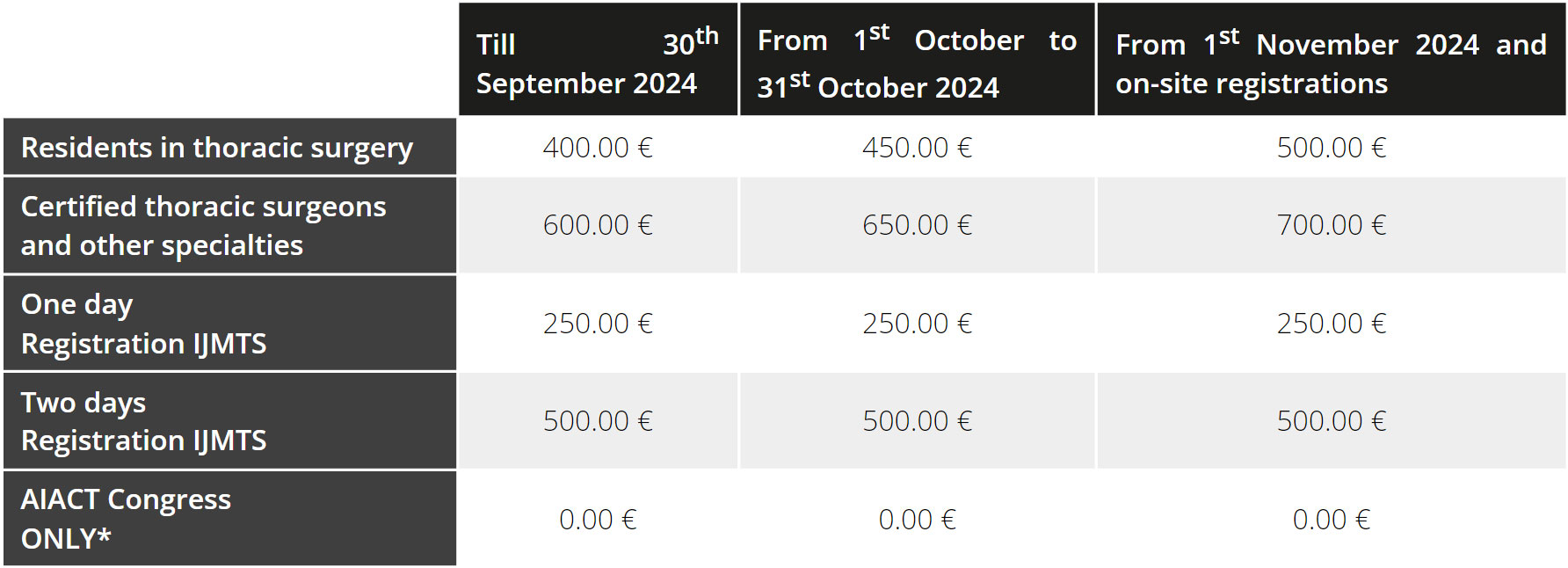
Registration fee includes
- Admission to all sessions, poster and video presentation
- Access to all content available on demand after the Congress for two months
- Admission to exhibition area
- Welcome drink
- Meeting documentation and programme
- Coffee breaks and lunches
- Certificate of attendance
Registration documentation will be handed-out to the participants from the Meeting Secretariat. Registration forms will be processed only when received before 31st October, 2024. After this date registration forms will be processed as on-site registrations.
On-line registration
On-line registration is possible through the web site Online payment is only possible by credit card. This service will let you register and pay through the Internet with an officially secured system SSL and receive your confirmation letter on-line.
Registration info
Registration form is also available on this web site ready to be printed. Please send it by fax or post together with the corresponding payment to the Secretariat before 1st November, 2024. Late registration will be possible on-site. Registration forms received without the complete contact address or without payment will not be accepted. The fees should be paid in Euros by credit card or bank transfer or by bank cheque in Euros payable through a Spanish bank and made out to ACTO-SERVEIS THORACIC SURGERY. A confirmation letter will be sent by email. Participants must bring this letter to the registration desk as proof of their registration.
Cancellation policy
Any cancellation must be notified in writing and will be subjected to the following conditions: refund of fees, less a 25% administrative charge, will be applied to cancellations received up to 31st October, 2024. As of 1st November, 2024, no refund can be made.
Payment of Registration Fees
Registrations can only be validated and confirmed when accompanied by payment. Early rates only apply when registration and payment are received before 30th September. When registrations and payments are received after 30th September 2024, then the corresponding late fees will automatically apply. Payment in EURO (€) should be made in advance by one of the following means:
Registration fees may be paid by credit card (ON-LINE REGISTRATION)
Accommodation
Information about accommodation will come soon.
Hotel Reservation
Hotel accommodation (within walking distance) with special rates has been reserved.
All bookings will be managed directly with the hotel by the corresponding website:
- Hotel Hcc Montblanc: www.hcchotels.com. For any information, you can contact by email montblanc@hcchotels.com
With this code you will always get the best rate available at the time of booking.
Congress Code for special rates: THORACIC
Lower Cost Accommodation
Younger visitors and those looking for alternative forms of accommodation will find youth hostels, halls of residence, some of them open all year round. In short, accommodation for all tastes and at prices to suit every pocket.
Below you will find a list of the students' hall of residence. For more information about the city's hotels please check the website [ www.barcelonaturisme.com ] (where to sleep).
Contact them directly to consult prices for short stays and make the reservation.
Sponsoring Guidelines
To request information on available sponsorship options, please contact with the Organizing Secretariat
thoracic.surgery@actoserveis.com
t +34 937 552 382
Endorsements
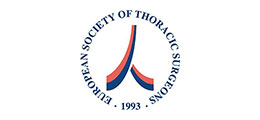
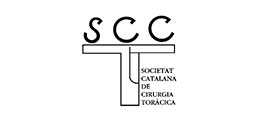
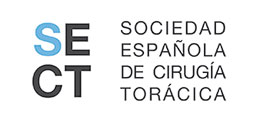
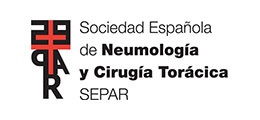
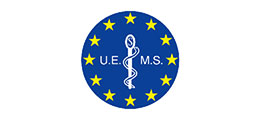
The Sixth International Joint Meeting on Thoracic Surgery, Barcelona, Spain 20/11/2024 - 22/11/2024 , has been accredited by the European Accreditation Council for Continuing Medical Education (EACCME®) with 24.0 European CME credits (ECMEC®s). Each medical specialist should claim only those hours of credit that he/she actually spent in the educational Activity
Sponsors
To request information on available sponsorship options, please contact with the Organizing Secretariat
thoracic.surgery@actoserveis.com
t +34 937 552 382
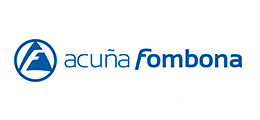
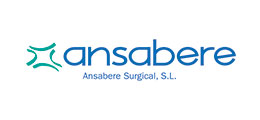
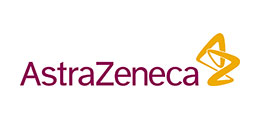
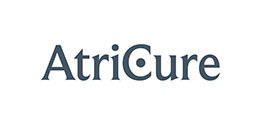
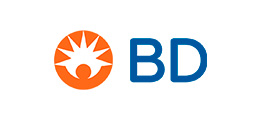
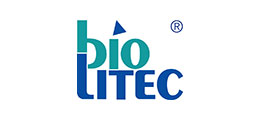
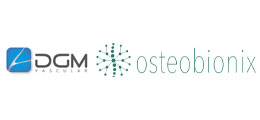
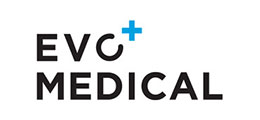
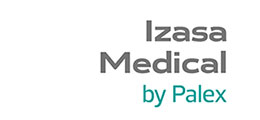


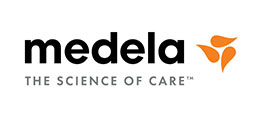

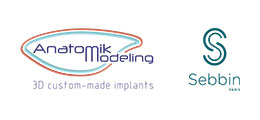

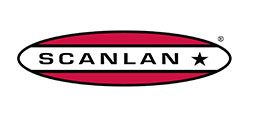
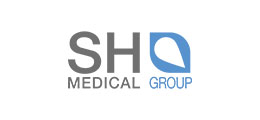
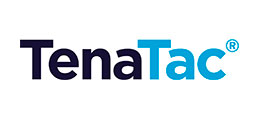
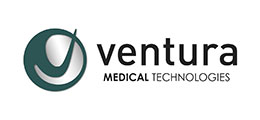
APP
Your access data for the event 6th IJMTS 2024
As a registered attendee at the event 6th IJMTS 2024 we offer you an application for mobile phones and tablets that can be very useful during the event.
|
Step 1 |
Event 6th IJMTS 2024 is available with a password in the container application of Eventool. You can download this application from virtual stores through the following links. |
|
Step 2 |
Once the app is open you have to enter the password IJMTS24 in the "Search" tab to access the event. |
|
Step 3 |
Some sections of the application, such as Networking, are only available to registered users. Please register to contact other |
General link. By using the link on a mobile device either Google Play oder App Store will be opened so that you can download the native app. If you open the link on pc, you will see the event app display on different devices and the links and qr-code for native app or PWA web app link.
https://www.eventool.com/IJMTS24
Progressive Web App. Access the event app through any mobile device and / or PC. The app will be automatically adapted depending on the size of each screen for a correct visualization. In addition, you can also install a shortcut on the desktop.
https://www.eventool.com/pwa/IJMTS24/

General Information
Venue
FOMENT DEL TREBALL NACIONAL
Vía Layetana 32-34
08003 Barcelona
Organizing Secretariat

TecnoCampus Mataró-Maresme | Edifici TCM2 | P2.O3
Av. Ernest Lluch, 32 | 08302 Mataró (Barcelona)
t +34 937 552 382
[ thoracic.surgery@actoserveis.com ]
[ www.thoracicsurgery2024.org ]
[ www.actoserveis.com ]

How to get from Barcelona airport to the Meeting venue
Barcelona International Airport (airport code BCN) is located 12 km southwest of the city.
By taxi: TAXIS are available at an approximate cost of 50 € including the required supplements for leaving the airport
and carrying luggage. They are yellow and black, and, when free, show a clearly visible green light on the roof of the
vehicle.
By bus: AEROBUS: This special service is clearly signposted at the stops outside the terminal and it takes you to different
parts of the city, the Plaza Catalunya stop is the closest to the Meeting Venue, 10 minutes walk approximately.
The AEROBÚS service operates 365 days a year, always with the same schedule (including Sundays and Holidays).
Departures from airport, from 05:35 to 01:00; departures from Plaza de Catalunya, from 05:00 to 00:15. Buses run every 5
to 10 minutes, depending on the time of day.
For further information regarding timetables and fares, we recommend you visit the
website: www.aerobusbcn.com.
Price: 5.90 € (Rates 2018)
By train: The station is located to the West of the terminal. Trains go to "Sants"
Station and run approximately every 30 minutes to and from Barcelona airport to
the city centre.
Length of journey: 17 minutes to Barcelona Sants station. Fare: 3.50 €.
Further information: www.renfe.es.
From here you can take:
Metro: Take the green line metro (line 3) from “Sants Estació” to "Plaça Catalunya"
Station (two stops). The rate for a single ticket is 2.20 €. Further information: www.tmb.net.
Bus: Take bus number 43 and 17 which have stops in "Via Laietana". Buses run
every 10-15 minutes. The rate for a single ticket is 2.20 €. Further information: www.tmb.net.
Coffee service
Coffee, soft drinks and snacks will be available at all times at the Exhibition Hall.
Official language
English will be the official language of the Joint Meeting. There will be no simultaneous translation into Spanish.
City Information
Barcelona overlooks the Mediterranean and is located in a heavily populated area which is a hub of economic activity.
Barcelona enjoys a Mediterranean climate, with mild winters and warm summers. It is a coastal city and has over four kilometres of urban beaches and large areas of nearby forest. Although it is a large city, it is easy to get around on public transport and on foot. You can reach any point in the city by metro, bus and taxi.
Barcelona is the capital of Catalonia. Its inhabitants are open and welcoming. The people of Barcelona speak Catalan, their own language, and Spanish. Many of them also understand a little English and French.
Visa
Spain is part of the Schengen zone. This means that nationals from EU countries do not need a visa.
Lenguage
Most of Barcelona’s inhabitants are bilingual and speak Catalan, their own language, and Spanish.
Electricity
The voltage in Spain is 220 volts, 50 Hz.. The plug types are C and F.
Climate
The city has a typically Mediterranean climate and enjoys pleasant temperatures all the year round.
Currency
The euro (€) is the official currency of the European Union and can be exchanged at savings banks and banks.
Banks
Business hours differ between banks. Most banks are open from Monday to Friday from 08:15 to 14:15
Customs
In Barcelona mealtimes are usually a little later than the rest of Europe. The city’s shops have long opening hours.
Shopping in Barcelona
Monday to Saturday, from 09:30 to 13:30 and from 16:30 to 20:00.
Most of the department stores do not close at mid-day.

